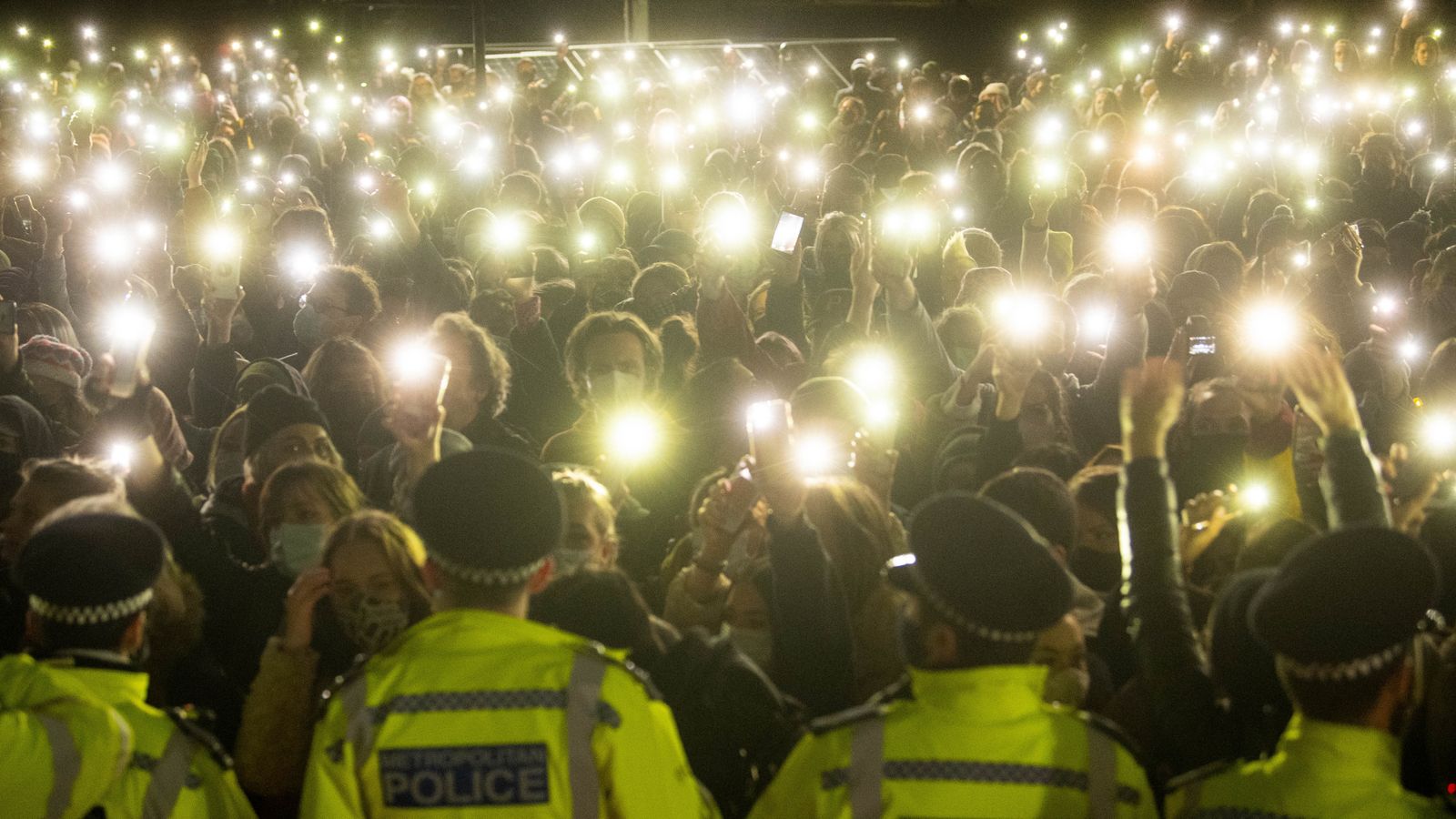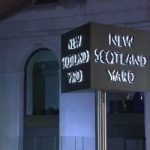High Court judges have ruled that the Metropolitan Police breached the rights of the organisers of a vigil for Sarah Everard in its handling of the planned event.
Reclaim These Streets (RTS) proposed a socially-distanced vigil for the murdered 33-year-old near to where she went missing in Clapham, south London, in March last year.
The four women who founded RTS and planned the vigil withdrew from organising it after being told by the force they would face fines of £10,000 each and possible prosecution if the event went ahead.
A spontaneous vigil and protest took place instead and the police were criticised for their actions after women were handcuffed and led away by officers.
A breach of freedom of speech rights
Jessica Leigh, Anna Birley, Henna Shah and Jamie Klingler brought a legal challenge against the Met Police over its handling of the event.
They argued decisions made by the force in advance of the planned vigil amounted to a breach of their human rights to freedom of speech and assembly and said the force did not assess the potential risk to public health.
Sarah Everard: Family say ‘we miss her all the time’ one year on from brutal murder
Police in half of UK forces are under investigation for abusing powers for sexual gain
A year after Sarah Everard’s murder, are women any safer?
Read more:
A year after Sarah Everard’s murder, are women any safer?
How Sarah Everard’s killer was caught
The controversies the Met Police commissioner presided over
In a ruling on Friday, two senior judges upheld their claim, finding the Met’s decisions in the run-up to the event were “not in accordance with the law”.
A ‘chilling effect’
In a summary of the ruling, Lord Justice Warby said: “The relevant decisions of the (Met) were to make statements at meetings, in letters, and in a press statement, to the effect that the Covid-19 regulations in force at the time meant that holding the vigil would be unlawful.
“Those statements interfered with the claimants’ rights because each had a ‘chilling effect’ and made at least some causal contribution to the decision to cancel the vigil.
“None of the (force’s) decisions was in accordance with the law; the evidence showed that the (force) failed to perform its legal duty to consider whether the claimants might have a reasonable excuse for holding the gathering, or to conduct the fact-specific proportionality assessment required in order to perform that duty.”
Met argues there was no exception for protest in coronavirus rules
The Met defended the claim brought by RTS and argued there was no exception for protest in the coronavirus rules at the time. It said it had “no obligation” to assess the public health risk.
RTS took urgent legal action the day before the planned event by seeking a High Court declaration that any ban on outdoor gatherings under the coronavirus regulations at the time was “subject to the right to protest”.
Their request was refused. The court also refused to make a declaration that an alleged force policy of “prohibiting all protests, irrespective of the specific circumstances” was unlawful.
A report by Her Majesty’s Inspectorate of Constabulary and Fire and Rescue Services concluded the police “acted appropriately” when dealing with the event.
However, it found it was a “public relations disaster” and described some statements made by members of the force as “tone deaf”.
Ms Everard was murdered by former Met Police officer Wayne Couzens, 49, who was given a whole life sentence from which he will never be released at the Old Bailey in September after he admitted killing her.






















